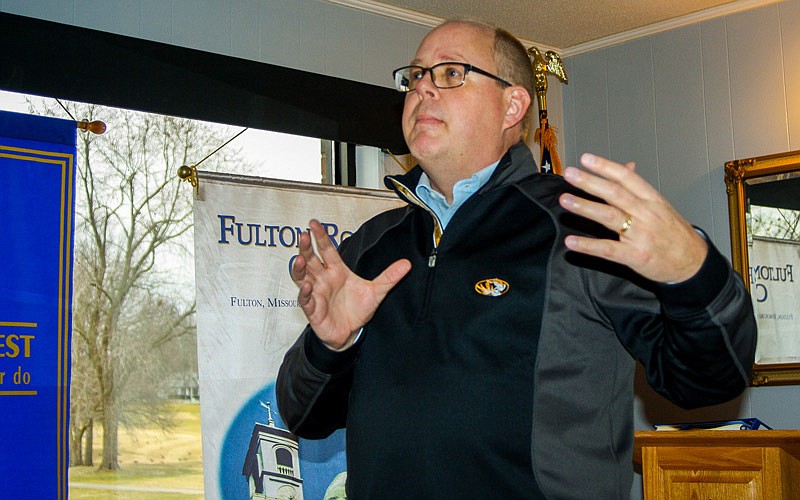In a world full of injustice, what does it mean to seek justice? Every year, Dr. J.D. Bowers, the director of the Honors College at the University of Missouri, takes students to the Netherlands to learn about justice on an international scale.
Bowers spoke to the Fulton Rotary Club last week, explaining how he puts students in an environment that highlights historic injustices, and how people today aim to put an end to it.
Every year, Bowers said, he takes students on a study abroad program to the Netherlands, where they are able to visit Amsterdam and The Hague to learn about international justice. Bowers said he became interested in the field when he was still in school.
"I took a class with the leading expert on the Armenian genocide," he said. "That's when I got hooked."
Later, while teaching in Hawaii, Bowers said he got his first opportunity to broaden some students' horizons.
"When I was teaching in Hawaii, the students there were well versed about the island's annexation by the United States," he said. "It was impossible for them to be unbiased about it. So, I showed them a different story. I showed them how in Cyprus, the same situation turned violent."
Cyprus is an island country in the Mediterranean. After World War II, tensions began to rise between the Greek and Turkish populations. During the 1960s, violence broke out. The island saw coups, invasions and armed conflict in the years that followed. Bowers said that there is still no solution in Cyprus, and there never will be.
"The reason their is no solution in Cyprus is because I can sit across from killers," he said. "I interviewed Rauf Denkta, a Turkish politician who admitted to bombing Turkish mosque on the island to increase tensions. A man who killed 50-60 people, and I could walk in to his office. There is no call for justice, so there will be no solution."
Teaching those students about Cyprus sparked his mission to introduce more students to justice, Bowers said. That was the inspiration for Bower's study abroad program. Bower's said that during each three-week trip, students trace the history of the Holocaust in the area, visit international justice courts in the Hague, and do research at the International Court of Justice law library.
"We spend about three days in Amsterdam doing a walking tour of the Holocaust through the city," he said. "We visit the museums, see the transit camp where Jews were shipped out of the city, and trace the boundary of the ghetto."
The meat of their journey comes when the trip reaches The Hague, Bowers said.
"The Hague is home to eight international justice courts," he said. "Students sit in on trials while there and do research at the ICJ law library. It's not just about going there; it's about coming home and thinking about things here. I want the journey to change them."
Another court that calls The Hague home is the International Criminal Court. In this court, perpetrators of genocide, crimes against humanity, war crimes and crimes of aggression are brought to task. Bowers said that the court is used as a last resort.
"If your country is persecuting people with a fair system, the ICC will not get involved," he said. "But, if there is a failure of justice, the ICC will step in."

